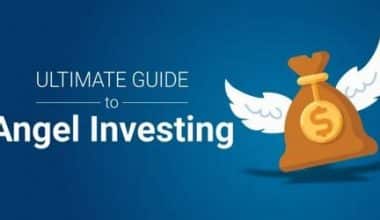The Small Business Administration of the United States assists small firms in obtaining finance by establishing loan rules and lowering lender risk. These SBA-backed loans make it easier for small businesses to obtain necessary cash. SBA loans are among the most popular small company lending options. This article talks about how to get an SBA loan approved.
Overview
A small business loan offers you funds to invest in your organization. The funds could be useful for variety of purposes, including providing working capital, financing enhancements such as infrastructure or staff upgrades, or financing business or property acquisitions. When deciding whether you are eligible for a loan and how much debt your business can afford, a bank evaluates various criteria, including the status of your firm, available collateral, cash flow, and character. SBA loans are small-business loans provided by the US Small Business Administration, a federal government agency that helps small businesses acquire funding.
The establishment of SBA loans is for the commercial lenders that have approval from the SBA, not by the SBA itself. Despite this, the SBA plays an important role in the process by guaranteeing up to 85% of the loan. This lowers the risk for bank lenders while making it easier for small-business owners to receive funding, allowing them to form or build a company, purchase real estate, purchase items, and do other things.
Many businesses are looking for cash, whether it’s to cover day-to-day expenses like payroll and supplier payments or to fund new growth and real estate acquisitions needed to expand your company. As a result, many businesses have turned to SBA 7(a) loans, which are made available by traditional lending institutions but are guaranteed by the federal government’s Small Business Administration.
Because of this backing, the lender is able to offer better terms than they otherwise would. An SBA loan offers longer repayment durations (up to 25 years), larger loan amounts (anywhere between $50,000 and $5,000,000), and lower interest rates (a maximum of 9.25% on fixed-rate loans between $50,000 and $250,000).
SBA Loan Options
The qualifications and terms vary based on the sort of loan product you’re applying for, so be sure your lender explains what they’ll need from you to qualify. You can apply for one of three types of SBA loans, depending on how much money you need and what you intend to do with it:
- SBA 7(a) loans: General purpose loans of up to $5 million, with the most usual repayment term of ten years.
- CDC/504 loans: Loans for the purchase of real estate and equipment with maturities of up to 25 years.
- SBA microloans: Loans of up to $50,000 with a maximum repayment duration of six years.
When applying for an SBA loan, you’ll need to give your lender a lot of information about your business and yourself. SBA loans are normally authorized only for the most eligible individuals, so having clear profit and loss statements, a complete business plan, and solid personal credit will go a long way toward receiving a loan.
Each lender and loan program has its own set of eligibility criteria. In general, eligibility is decided by what a firm does for a living, the nature of its ownership, and its location. Businesses must typically meet SBA size standards, be able to repay, and have a compelling business purpose. Even those with bad credit may be able to obtain startup funding. The lender will give you a detailed list of loan eligibility requirements.
Qualifying for an SBA Loan
Take the following measures to improve your chances of receiving an SBA loan:
#1. Improve Your Credit
Most SBA loans need “acceptable” credit rather than a minimum credit score. We’ll go over the credit score standards for SBA loans shortly.
If you have the ability to increase your personal or corporate credit scores, you should do so. To begin creating a credit history, you may open a pair of business credit cards and then pay your debt on time, if not in whole, every month. Examine your business credit reports and repair any inaccuracies or concerns.
#2. Create a Business Plan
A business plan may not be required for an SBA loan. They are not necessary for all loans or lenders. However, some will. Even if they don’t, the material in your business plan can provide you and the lender with the proof you need to demonstrate your ability to repay the loan. If you don’t have one, your local SBDC or a SCORE mentor can help you create one for free.
#3. Supplemental Documentation
You cannot be denied an SBA loan solely due to a lack of collateral. Most SBA loans, however, require you to put up collateral, such as real estate or equipment, if you own it. Determine the market worth of any items you intend to use as collateral for the loan ahead of time. Keep in mind that SBA loans often require a personal guarantee. That is, if the corporation fails to repay the obligation, you will be personally accountable.
#4. Gather Financial and Legal Documentation
If your lender requires it, obtain business bank account statements, business financial statements, and even personal financial statements. Some of these may necessitate the assistance of a tax professional, but your bookkeeping should be up to date at the very least.
The sooner you start working on these activities, the better equipped you will be when it comes time to apply. Creating credit, for example, takes time, so start building or improving your credit profile before you need money right now.
#5 Is the Debt-To-Income Ratio
Lenders frequently consider the debt-to-income ratio, which compares how much money you make to how much money you owe. Your debt-to-income ratio shows how indebted your company is today, and a lower ratio indicates that your company has a stronger ability to repay extra borrowing.
#6. Flow of Funds
Lenders want to know that you will be able to make your monthly payments, so they look at how well you manage your cash flow. They aim to ensure that more money comes in than goes out.
Step-By-Step SBA Loan Procedure
The SBA loan application process might be intimidating for first-time applicants and new business owners. Let’s have a look at what happens at each stage of the approval process:
#1. The Owner of a Small Business Prepares a Loan Application (Which Can Take Up to 30 Days but Varies From Person to Person)
People requesting an SBA 7(a) loan, for example, must complete an application that includes questions about their citizenship status, any criminal history, their firm, and how they intend to use the funds. Also required is a personal history statement, a personal financial statement, business financial statements, business ownership and license documentation, loan application history, income tax returns, a resume, and a copy of the business lease.
#2. The Lender Examines the Application (Which Takes 10-14 Days or More and Includes the Underwriting Process in the Next Step)
This research includes looking at the small-business owner’s credit score and business plan to see how likely they are to repay the loan plus interest. If your lender is not a participant in the SBA’s Preferred Lenders Program, the loan must be approved by the SBA before the lender can underwrite it. Because of this condition, the loan approval process will most probably take longer.
#3. The Lender Underwrites the Loan
In the case of a default, the lender may now recover valuations for any collateral handed up. If the business is already up and running, the lender will examine environmental reports, balance sheets, income statements, and financial projections. This analysis aids the lender in evaluating how much money the applicant is qualified to borrow and the interest rate at which it must be repaid.
#4. Loan Agreement Documents Are Created (Which Takes Around 10-21 Days)
This responsibility includes, above all, a formal commitment letter describing the loan amount, terms and circumstances, any collateral necessary, repayment terms, and interest rate.
#5 The Loan Has Been Paid off (Generally Takes Seven to 14 Days, Though Some Banks Warn It Could Take Up to 90 Days)
During this time, the lender should maintain contact with the small-business owner and notify them of any issues.
What Disqualifies You From Getting an SBA Loan?
The SBA then reduced the restriction to simply prohibit lending to anyone convicted of a felony for “fraud, bribery, embezzlement, or a false statement in a loan application,” unless the owner was convicted of, or began parole or probation for, a felony during the previous year. Other reasons why a borrower may be denied an SBA loan include:
- Bad credit.
- The industry is prohibited.
- Not eligible to be classified as a small business.
- Cannot show the ability to repay the loan.
- Criminal record.
How Can I Ensure That My SBA Loan Gets Approved?
To do so, you must follow SBA processes, find an SBA lender in your area, adhere to time constraints, produce the relevant documentation, and understand why you want the loan in order to avoid disqualification.
What Credit Score Is Needed for an SBA Loan?
But keep in mind that, depending on the SBA loan, the SBA loan will go through a lender, who has no problem doing so. For SBA 7(a), this translates to a minimum score of around 640. However, a minimum credit score of 680 or higher will boost your chances of being approved for an SBA loan.
How Can I Get an SBA Loan Fast?
There are a few
- Maintain your financial records.
- Make use of a recommended lender.
- Check for proper fit.
- Hedging your bets
- Provide greater backup.
- Seek assistance.
Are SBA Loans Hard to Get?
The main reason it’s hard to acquire an SBA loan is that you’re establishing a new business. Traditional lenders consider beginning business investments to be “risky.” Before they will accept approval, they normally want the business to be at least two years old.
What Is the Minimum Down Payment for an SBA Loan?
On 7(a) and 504 loans, the minimum SBA loan down payment is 10% and is depending on a company’s cash flow and collateral. Weak cash flow or low-value collateral can raise the required down payment to up to 30% of the loan amount.
What Is the Max SBA Loan?
Loans from the SBA are normally limited to $5 million. Certain eligible energy-efficient or manufacturing projects may be eligible for multiple 504 loans totaling up to $5.5 million. Interest rate: Low-interest rates are fixed for the duration of the loan.
The maximum loan limit for most 7(a) loans is $4.5 million. However, the maximum amount available for SBA Express loans is $300,000. The maximum amount available for an SBA Export Express loan is $450,000.
What Is the Easiest SBA Loan to Get Approved For?
When compared to other SBA loans, qualifying for an SBA microloan might be simpler. These loans are often managed by nonprofit lenders, and in order to assess eligibility, the Small Business Administration (SBA) provides guidelines that are followed. Always verify with the lenders to determine the rates and determine whether or not you qualify.
How Do I Make Sure My SBA Loan Gets Approved?
Be prepared for your score to have a role in determining whether or not you are approved. The Small Business Administration requires “sufficient credit” for the majority of their loans, although they do not stipulate a minimum credit score criterion. However, the majority of lending institutions will require a personal credit score of at least 680—700 or higher. When applying for EIDL and PPP, one’s credit history is taken into consideration.
What Are the Chances of Getting Approved for an SBA Loan?
Only about one-quarter of business loan applications, including SBA loan applications, are granted approval at large banks. Although the approval rate is higher at small banks—it currently hovers around 49%—still more than half of the people who apply for loans are denied. If your request for a loan from the Small Business Administration (SBA) was turned down, know that you are in good company.
Can I Get an SBA Loan With No Money?
However, the Small Business Administration (SBA) provides a number of financing programs for small businesses, one of which is the SBA Microloan. Borrowers participating in the microloan program will, as the name suggests, receive smaller loans through this program. The Small Business Administration (SBA) permits intermediate lenders to provide microloans of up to $50,000, but the typical amount is $13,000.
Does Everyone Get Approved for SBA Loan?
In general, eligibility is determined by the activities that a company engages in to earn revenue, the composition of the company’s ownership, and the geographic location of the company’s operations. In order to qualify for SBA loans, a company typically needs to be able to repay the loan, meet certain size requirements, and have a legitimate business purpose. Even those with poor credit histories may be eligible for funding for new businesses.
Can I Spend My SBA Loan on Anything?
EIDL funds can now be used to pay or prepay commercial debt thanks to a recent modification made to the EIDL program by the SBA. To put it another way, you can use the funds from your EIDL to pay off the entirety of the remaining balance on a commercial loan that you obtained through conventional lenders. You can also make payments on the debt owed by your company to the federal government (e.g. other SBA loans).
Conclusion
The SBA loan is the best loan for small businesses. It helps the business grow, especially in difficult situations like the COVID pandemic). To get approved for the SBA loan, you will need a good lender. Follow the processes and give accurate information. When you have received the loan, use it for business reasons and start making arrangements to pay it back. This article teaches “how to get SBA loan approved.”
HOW TO GET SBA LOAN APPROVED FAQs
What is the easiest SBA loan to get?
SBA microloans are one of the easiest SBA loans to receive. SBA microloans are made available by nonprofit community lenders. Especially those who determine their own interest rates and qualifying restrictions (with some guidance from the SBA).
What are my chances of getting an SBA loan approved?
At big banks, the approval rate for business loans, including SBA loans, is only around 20%. At small banks, the acceptance percentage is higher—sitting at 48%—but over half of borrowers still get turned down. If you’ve been turned down for an SBA loan, you’re not alone.
Do SBA loans get turned down?
The SBA has strict criteria for the types of businesses to which it will lend money, and meeting those criteria can be difficult. Even if you have completed the application process, your SBA loan may be disqualified or denied.
Related Articles
- SBA LOAN PROCESS: What It Is and How It Works
- BUSINESS LOANS BAD CREDIT: Definition and How to Get It
- Small Business Loan: How to Get a Small Business Loan
- BUSINESS LOAN FOR EQUIPMENT: How To Get Business Loans For Equipment
- SBA EXPRESS LOAN: Online Application, Programs, Requirements for any Business






